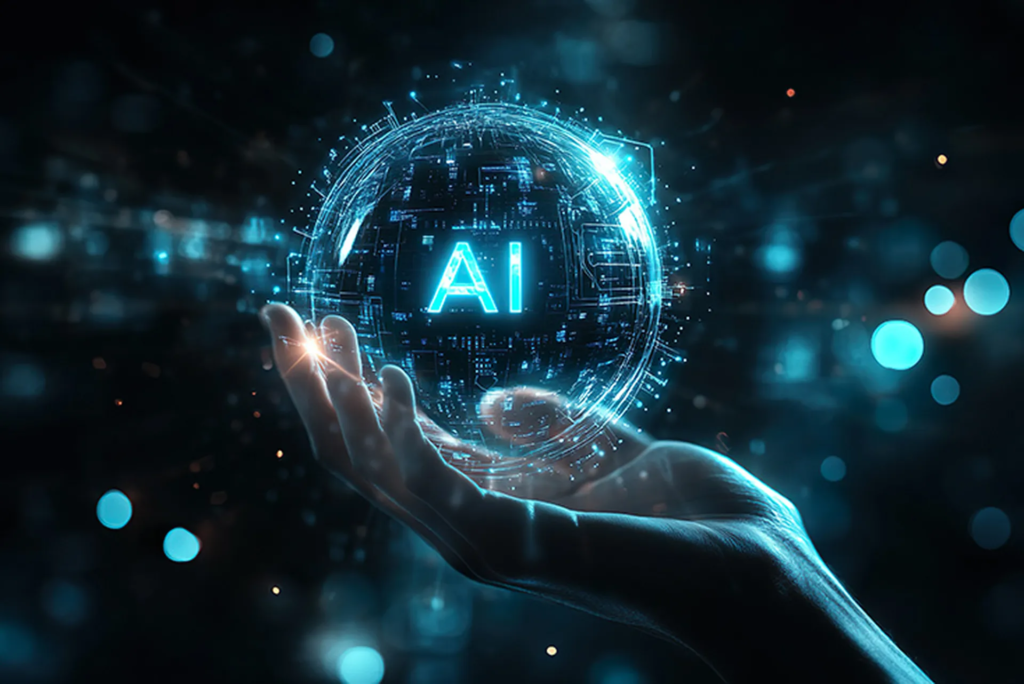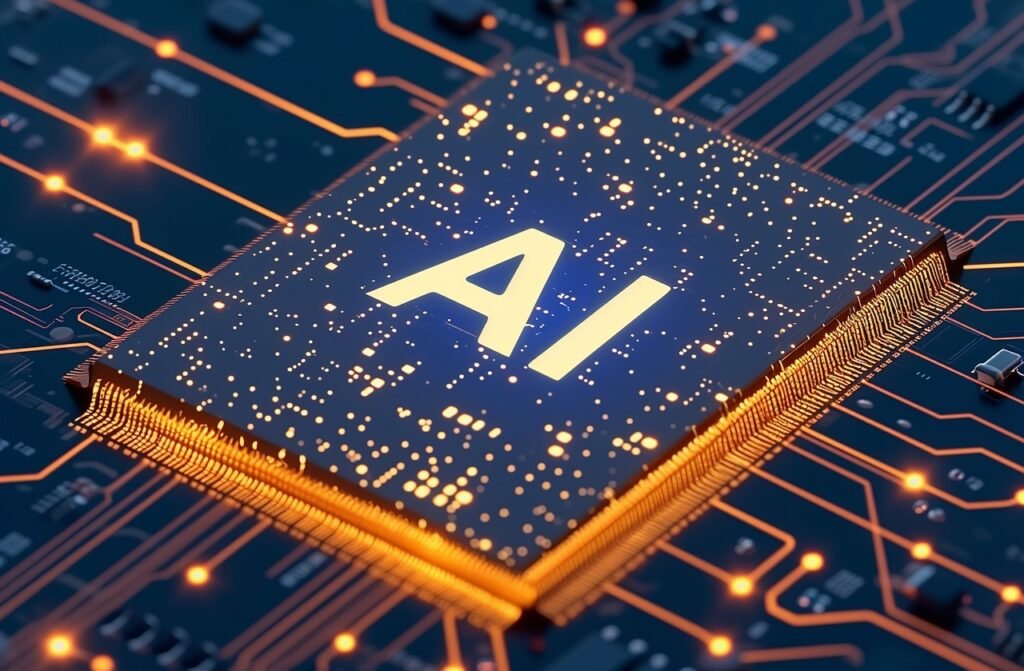AI in 2025, The influence of artificial intelligence (AI), which has advanced at an incredible rate, is more significant than ever as 2025 draws near. AI is a reality that is altering industries, workflows, and personal experiences; it is not just a sci-fi fantasy. Artificial intelligence is changing the world in ways we never could have predicted, from healthcare to economics, education, and entertainment. What effects will AI have on daily life and industry in 2025? Let’s examine it.
AI in Healthcare: A Revolution in Patient Treatment
Thanks to AI, the healthcare industry has experienced a significant revolution. With previously unheard-of accuracy, AI-powered diagnostic technologies can already identify diseases like cancer, Alzheimer’s, and heart issues, enabling early intervention and improved treatment results.
AI-driven chatbots and virtual assistants provide 24/7 medical support, helping patients schedule appointments, get medical advice, and even receive reminders to take their medication. Complex treatments are now safer because of the increased precision of AI-assisted robotic surgeries. AI-powered personalized medicine improves recovery rates by providing individualized treatment regimens based on a patient’s genetics, lifestyle, and medical history.
AI in Finance: Preventing Fraud and Improving Banking
AI has completely changed the banking sector by improving the security of transactions and the intelligence of investment plans. Robo-advisors with AI capabilities examine market patterns and customize investment suggestions based on each client’s financial objectives.
AI is also essential for detecting fraud. AI can identify suspicious transactions in real time by examining trends, which lowers the number of crimes. Additionally, automation has improved productivity also AI in 2025 reduced paperwork in financial processes. Chatbots powered by AI improve customer service by offering immediate assistance and tailored financial guidance.

AI in Education: Personalized Learning Experiences
Education has seen a major shift, thanks to AI. Smart classrooms adapt to students’ learning styles and paces, ensuring personalized education for every learner. AI tutors provide one-on-one assistance, helping students master complex subjects like math and science.
Teachers now rely on AI-powered grading systems that automate assessments and provide instant feedback. AI-driven language learning apps offer real-time speech recognition, making learning new languages easier and more engaging.
AI in Entertainment: Hyper-Personalized Content
AI has made entertainment more immersive. Streaming services like Spotify and Netflix examine user behavior to select content that precisely suits each user’s tastes.
Deepfake technology and AI-generated music are creating new creative opportunities that let artists stretch the boundaries of their craft. AI-driven characters that learn and adapt are becoming a common component in video games, making gameplay more dynamic and customized than ever.
Retail AI: The Future of Buying
It has never been more intelligent to shop. E-commerce platforms with AI capabilities make product recommendations based on user preferences, AI in 2025, which raises consumer happiness and increases sales. Before making a purchase, customers can preview how clothing, accessories, and makeup will seem thanks to virtual try-on technology.
AI-powered cashier-less checkout systems at real stores allow customers to pick up their purchases and go without having to wait in a queue. Retailers can forecast demand with the aid of AI-powered inventory management, which also reduces waste and streamlines supply chains.
AI in Transportation: Self-Driving Cars and Smart Traffic Control
Autonomous vehicles are becoming a reality, not just a concept. By removing human mistakes, AI-powered autonomous cars have significantly decreased traffic accidents. AI is increasingly being used by ride-sharing businesses to optimize routes, reducing fuel usage and trip time.
To reduce traffic in crowded cities, AI-driven traffic management systems dynamically modify traffic signals by analyzing real-time data. AI in 2025, Drones with AI capabilities are also transforming delivery services by guaranteeing quicker and more effective cargo transportation.
AI in Manufacturing: Efficiency and Safety Boost
AI has transformed the manufacturing industry by improving productivity and workplace safety. Robots driven by AI perform dangerous and repetitive jobs, lowering workplace accidents and increasing productivity.
AI in 2025, AI-powered predictive maintenance assists businesses in keeping an eye on the condition of their equipment, averting unexpected malfunctions and reducing maintenance expenses. Supply networks powered by AI streamline logistics and improve manufacturing processes beyond recognition.

AI in Cybersecurity: More Robust Online Defence
AI is now the foundation of digital security because of the increasing sophistication of cyber threats. Systems driven by AI are always looking for dangers, identifying and stopping cyberattacks before they have a chance to do damage.
Automated threat response systems minimize possible harm by eliminating security breaches in a matter of seconds. Voice biometrics and facial recognition are two AI-driven authentication techniques that improve online security and make digital transactions safer.
AI in Agriculture: Smart Farming for a Sustainable Future
AI is driving innovation in agriculture, making farming more efficient and sustainable. Drones with AI capabilities track crop health, identify pests, and adjust irrigation to maximize output while using fewer resources.
AI in 2025, AI-controlled automated farming equipment manages planting, watering, and harvesting, saving labor expenses and increasing output. Predictive analytics powered by AI assists farmers in making data-driven choices that improve crop management and sustainability.
The Future of AI: What’s Next?
As AI continues to evolve, ethical concerns around data privacy, job displacement, and AI bias remain key issues. Governments and tech companies are working to implement regulations that ensure AI is used responsibly and ethically.
AI in 2025 isn’t just about convenience—it’s about creating a smarter, safer, and more efficient world. With rapid advancements, AI’s potential is limitless, and its integration into society is set to grow even further.
AI in Daily Life: Smart Homes and Virtual Assistants
Our daily duties are now more convenient thanks to AI’s smooth integration. More sophisticated virtual assistants, such as Alexa and Google Assistant, now aid users with task scheduling, online shopping, and even phone calls.
AI-powered smart homes use predictive algorithms to modify security, heating, and lighting settings according to user preferences. AI-powered personal finance apps examine consumer spending patterns and provide advice on saving and creating a budget.
Read More: iPhone SE 4 Expected to Launch on February 19 as Apple Gears Up for a Major Event
Conclusion
AI in 2025, Artificial intelligence will have transformed daily lives and industry in ways we could only imagine. AI is improving the efficiency, security, and personalization of many aspects of our lives, including healthcare, transportation, banking, and entertainment. Even while there are still difficulties, the advantages greatly exceed the hazards, opening the door for a time when technology improves all facets of human existence. AI is at the forefront of the future, and that much is certain.